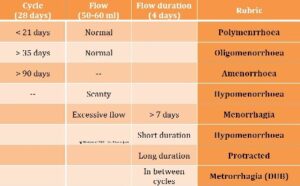What is Hormonal Disorder?
Hormonal disorders refer to conditions caused by imbalances in the body’s hormones. These imbalances can affect various bodily functions, including metabolism, growth, reproduction, and mood. Hormonal disorders in females are often related to disturbances in the female hormonal axis, primarily involving estrogen and progesterone, which control menstruation and other key functions.
When these hormones are not in balance, a range of symptoms and conditions can occur, including irregular periods, weight gain, hair loss, hot flashes, and more. Hormonal disorders can significantly affect a woman’s overall health and well-being.
Causes of Hormonal Disorder
Hormonal imbalances can be triggered by several factors:
- Faulty Diet: High intake of processed foods, junk food, and irregular eating habits can lead to hormonal disruption.
- Genetics: A family history of menstrual disturbances or other hormonal issues may increase the likelihood of developing hormonal imbalances.
- Stress Levels: Emotional stress from work, education, or personal life can interfere with hormone regulation.
- Sedentary Lifestyle: Lack of physical activity and exercise can contribute to hormonal disorders.
- Toxins: Exposure to environmental toxins such as pesticides, pollution, and smoking can negatively impact hormonal balance.
What Do These Female Hormones Do?
The primary female hormones, estrogen and progesterone, regulate key functions, including:
- Proper Menstrual Flow: Ensuring regular menstrual cycles.
- Growth and Development of Breasts: Estrogen plays a role in breast tissue development.
- Hair Distribution: Hormones influence the growth of body and facial hair.
- Conception: Maintaining hormonal balance is essential for a normal pregnancy.
- Mood Control: Hormones help regulate mood swings and emotional stability.
- Metabolism and Weight: Proper hormonal function controls metabolism, preventing weight gain (obesity).
Signs and Symptoms of Hormonal Disorder
Some common symptoms of hormonal disorders include:
- Irregular Menstrual Cycles: Delayed, scanty, or heavy periods.
- Painful Menstruation: Dysmenorrhoea (painful periods).
- Unusual Hair Growth: Excessive hair on the face, chest, or other areas.
- Weight Gain: Increased weight, water retention, and bloating.
- Skin Issues: Acne, pimples, or pigmentation changes.
- Mood Swings: Emotional fluctuations and PMS symptoms.
- Infertility: Difficulty conceiving or recurrent miscarriages.
- Breast Issues: Painful, lumpy, or underdeveloped breasts.
- Leucorrhoea: Abnormal vaginal discharge.

Common Hormonal Disorders
PCOS/PCOD (Polycystic Ovarian Syndrome): A common condition marked by cysts in the ovaries, leading to irregular periods, infertility, and hormonal imbalances.
Ovarian Cysts: Fluid-filled sacs in the ovaries that can cause complications if they rupture or twist.
Fibroids: Non-cancerous tumors in the uterus, causing heavy, painful periods.
Infertility: The inability to conceive or carry a pregnancy to term.
Endometriosis: A condition where tissue similar to the uterine lining grows outside the uterus, causing pain and irregular bleeding.
Pelvic Inflammatory Disease (PID): Inflammation of the uterus, fallopian tubes, or ovaries, which can lead to infections and scarring.
Conventional Treatment of Female Hormonal Disorders
Traditional treatments often focus on hormonal replacement therapy (HRT) or surgical removal of affected organs:
- Hormonal Replacement: Hormone therapy (e.g., contraceptive pills, progestins) provides temporary relief but does not address the root cause.
- Surgical Options: In cases like fibroids, ovarian cysts, or infertility, surgical removal of the affected organs (e.g., hysterectomy) may be advised. However, this approach does not resolve the underlying hormonal imbalance.
While these treatments can offer temporary relief, they often come with long-term side effects and do not restore the body’s natural hormonal balance.
HomoeoCARE’s Approach
At HomoeoCARE, we focus on a natural, holistic approach to treating hormonal imbalances. Rather than relying on synthetic hormones, our treatments aim to stimulate the body’s own hormone production to restore balance and harmony. Each woman is assessed individually to understand the underlying causes of her hormonal imbalance, and a personalized treatment plan is crafted.
Our homeopathic medicines work by stimulating the body’s own systems, promoting the natural production of hormones and helping the body regain balance. We avoid using artificial hormones and focus on supporting the body’s natural processes.
Why Choose HomoeoCARE?
- Natural and Safe: Our treatments stimulate your body to produce hormones naturally, without the need for synthetic replacements or invasive surgeries.
- Personalized Care: We provide tailor-made solutions based on your individual needs and health status.
- Regular Monitoring: We track your progress through regular clinical check-ups and tests, including ultrasounds and hormonal assays, to ensure you are on the right path to recovery.
- Comprehensive Support: We address not only the hormonal imbalance but also the underlying factors such as stress, lifestyle, and diet.
With HomoeoCARE, you can achieve hormonal harmony without relying on artificial treatments or undergoing invasive surgeries. Choose us to restore balance and improve your overall health naturally.
